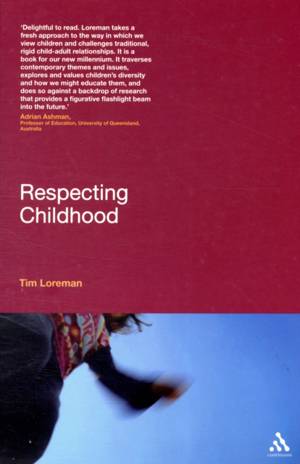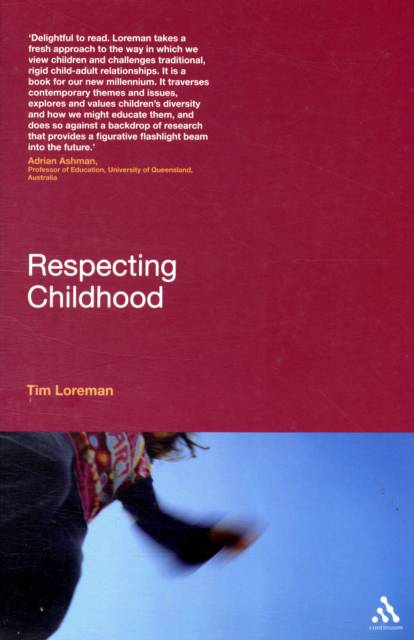
- Retrait gratuit dans votre magasin Club
- 7.000.000 titres dans notre catalogue
- Payer en toute sécurité
- Toujours un magasin près de chez vous
- Retrait gratuit dans votre magasin Club
- 7.000.0000 titres dans notre catalogue
- Payer en toute sécurité
- Toujours un magasin près de chez vous
Description
Respecting Childhood critically examines modern day views and practices related to children and childhood.
It begins with a discussion of how Western society conceptualizes and often idealizes children as being fragile, innocent and 'incompetent' (or 'immature'). Childhood is often reduced by adults to being seen as preparation for the future, instead of being viewed as a stage of life worthy of respect in its own right. This is evidenced in parenting styles, practices and structures in schools, and media representations. As a result of these views of childhood, many extreme ways of living and working with children have been proposed, from over-permissiveness on the one hand, to a call for a 'back to basics' strict style of discipline and education on the other.
Childhood is now seen as being so complex that parents and teachers frequently feel the need to seek out and follow often conflicting 'expert advice' on how to raise and teach children, rather than following their natural instincts and common sense.
Â
Respecting Children advocates a more balanced approach, calling for views of children that allow them to be children, and to live their childhood in the present, rather than constantly having to follow the dubious proposition of 'maximizing' their learning and development in order to become more competitive, successful adults in the future.
Â
Each chapter explores a different aspect of children's lives, such as their relationships with others, their capabilities, their behaviour, and looks to how these compare in the different contexts of society, home and school life. 'Windows on research', case studies and discussion questions engage the reader, making this book accessible for undergraduate students of courses such as Childhood Studies, Early Childhood Education and Education Studies, and to those of MA Education and MA Childhood and Society programmes.
It begins with a discussion of how Western society conceptualizes and often idealizes children as being fragile, innocent and 'incompetent' (or 'immature'). Childhood is often reduced by adults to being seen as preparation for the future, instead of being viewed as a stage of life worthy of respect in its own right. This is evidenced in parenting styles, practices and structures in schools, and media representations. As a result of these views of childhood, many extreme ways of living and working with children have been proposed, from over-permissiveness on the one hand, to a call for a 'back to basics' strict style of discipline and education on the other.
Childhood is now seen as being so complex that parents and teachers frequently feel the need to seek out and follow often conflicting 'expert advice' on how to raise and teach children, rather than following their natural instincts and common sense.
Â
Respecting Children advocates a more balanced approach, calling for views of children that allow them to be children, and to live their childhood in the present, rather than constantly having to follow the dubious proposition of 'maximizing' their learning and development in order to become more competitive, successful adults in the future.
Â
Each chapter explores a different aspect of children's lives, such as their relationships with others, their capabilities, their behaviour, and looks to how these compare in the different contexts of society, home and school life. 'Windows on research', case studies and discussion questions engage the reader, making this book accessible for undergraduate students of courses such as Childhood Studies, Early Childhood Education and Education Studies, and to those of MA Education and MA Childhood and Society programmes.
Spécifications
Parties prenantes
- Auteur(s) :
- Editeur:
Contenu
- Nombre de pages :
- 152
- Langue:
- Anglais
Caractéristiques
- EAN:
- 9780826432445
- Date de parution :
- 16-04-09
- Format:
- Livre broché
- Format numérique:
- Trade paperback (VS)
- Dimensions :
- 155 mm x 231 mm
- Poids :
- 226 g

Les avis
Nous publions uniquement les avis qui respectent les conditions requises. Consultez nos conditions pour les avis.






